Search Fellows
Click on a Fellow below to view more information or create your own search.

Judd B. Kessler
University of Pennsylvania
Visiting Scholar
2014 to 2015
Kessler (working with Andrew Schotter) will write a series of papers examining the impact of both explicit and implicit advice on people’s decision making processes and their subsequent life outcomes. He hypothesizes that one of the reasons why the rich stay rich and the poor stay poor is the quality of advice each receives when they make major life decisions.

Wojciech Kopczuk
Columbia University
Visiting Scholar
2019 to 2020
Kopczuk will work on measurement of trends in income inequality. In particular, using corporate tax data, he will analyze the extent to which retained corporate earnings have affected prior measurements of income at the top of the distribution. He will also explore how the movements of high-income and high-skilled migrants have affected trends in income inequality in both their destination and origin countries.
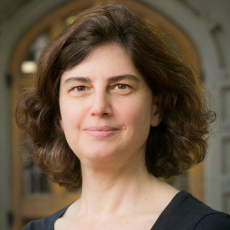
Rachel E. Kranton
University of Maryland
Visiting Scholar
1997 to 1998
Rachel E. Kranton, assistant professor of economics at the University of Maryland, explored the enduring importance of personal ties in negotiating economic exchange. In the expanding global economy, arrangements based on common ethnicity, family connections, and shared educational backgrounds still play an integral market role. Kranton investigated how community- and relationship-based channels of exchange can replace or complement impersonal markets.

Alan Krueger
Princeton University
Visiting Scholar
2003 to 2004
Alan B. Krueger, Bendheim Professor of Economics and Public Policy and professor of economics and public affairs, Woodrow Wilson School, Princeton University, will tackle multiple projects, including a study of whether there is a connection between terrorism and poverty, low income, and political repression. During his year at the Foundation, Krueger will also examine private school voucher experiments, the ways in which the public learns about the economy, the effectiveness of the Fast ForWord reading program, and methods of measuring well-being.
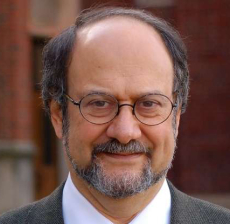
Robert Kuttner
American Prospect
Visiting Researcher
Kuttner is the founder and co-editor of the American Prospect. At RSF he worked on a book assessing how globalization has complicated the project of managing capitalism and even affected democracy itself. He investigated the extent to which globalization, technology, cultural shifts, and domestic policies have contributed to growing wealth and income inequality in the U.S. and other countries.
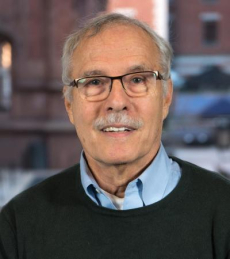
Henry M. Levin
Stanford University
Visiting Scholar
1996 to 1997
Henry M. Levin, professor of higher education and economics, Stanford University, worked on his Accelerated Schools Project, an effort to improve the educational performance of at risk-students by enriching and accelerating their education rather than by following the existing strategy of remediation. The project began ten years ago in two pilot schools in the Bay Area and now involves some 1,000 schools in forty states. Levin also worked on papers dealing with educational vouchers, school change, and economic analyses of education standards.

Frank Levy
Massachusetts Institute of Technology
Visiting Scholar
2000 to 2001
Frank Levy, professor of urban economics at MIT, will co-author a book with Richard Murnane that will attempt to forecast the impact of computerization on jobs and earnings inequality in the near future. Rather than simply assuming that computers will replace the less-educated, the authors will map out those areas of work that are susceptible to computerization and those jobs that will require human skills for the foreseeable future.
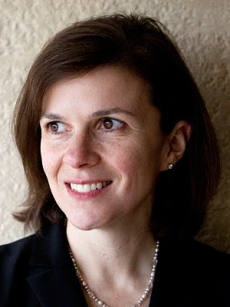
Helen Levy
University of Michigan
Visiting Scholar
2016 to 2017
Levy will evalaute the economic consequences of health care reform by comparing outcomes in states that have expanded Medicaid under the Affordable Care Act with outcomes in those that did not. She will analyze the impact of Medicaid expansions on food insecurity and participation in the Supplemental Nutrition Assistance Program (SNAP) (formerly food stamps) among low-income individuals. She will also investigate changes in employment trends in the health care sector and analyze the demographic characteristics of health care workers potentially affected by Medicaid expansions.

Mark Lilla
Columbia University
Visiting Scholar
2016 to 2017
Lilla will work on a book, Ignorance and Bliss: On the Rationality of Not Knowing, which explores why people often choose not to know. The book will examine the relationship between ignorance and happiness and bridge the humanities (philosophy, religion, and literature) and the social sciences (cognitive psychology, behavioral economics, cultural anthropology) in order to investigate the consequences for individuals and societies of choosing ignorance over knowledge.
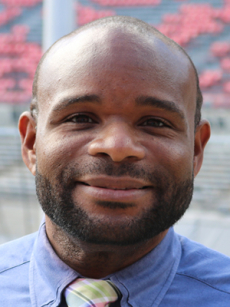
Trevon Logan
The Ohio State University
Visiting Scholar
2022 to 2023
Logan will work on a book exploring key issues in the economic analysis of racial disparities. He will combine quantitative data with narrative life histories of 16 African American siblings who were cotton pickers in rural, post-war Mississippi and who are now retired and live in the upper Midwest.

Jens Ludwig
University of Chicago
Visiting Scholar
2010 to 2011
Ludwig will write a book about how neighborhood environments affect the life chances and well-being of low-income families, using data from the U.S. Department of Housing and Urban Development’s Moving to Opportunity residential mobility experiment.
Shelly J. Lundberg
University of Washington
Visiting Scholar
2008 to 2009
Shelly J. Lundberg, Castor Professor of Economics at the University of Washington, will complete a non-technical book on the economics of family behavior that applies economic reasoning to changing patterns in fertility, marriage, gender roles, and domestic life in modern industrial societies. Lundberg will address a variety of issues such as class divergence in family patterns and the converging economic lives of men and women from an economic perspective.

W. Bentley MacLeod
Columbia University
Visiting Scholar
2010 to 2011
MacLeod is part of a working group (with Miguel Urquiola), which will examine the structure of educational markets, including how students are matched to schools and whether the use of standardized tests in schools impacts student performance and their potential in the labor market. Separately, MacLeod will analyze the role of different forms of compensation in labor markets and in the growth of inequality. Miguel Urquiola plans to complete a report on how family and school environment interact to affect outcomes for children.
Robert A. Margo
Boston University
Visiting Scholar
2008 to 2009
Robert A. Margo, Professor of Economics and African American Studies at Boston University, will complete a book on the historic evolution of racial differences in housing. Margo will analyze long-run trends in home ownership, property values, residential segregation, urban riots, and relevant legal and policy issues.
Ronald B. Mincy
Columbia University
Visiting Scholar
2015 to 2016
In collaboration with Natasha J. Cabrera, Mincy will examine the connections between low-income fathers’ earnings and financial support and their children’s cognitive and behavioral outcomes. Using several waves of data from the Fragile Families Study, Cabrera and Mincy will explore how the associations between fathers’ earnings and children’s skills are affected by factors such as race, maternal stress, parental engagement, and child care quality.

Sylvia Nasar
Columbia University
Visiting Scholar
2006 to 2007
Sylvia Nasar, John S. and James L. Knight Professor of Business Journalism at Columbia University, will spend the spring at the Foundation writing a book on the intersecting histories of key economic thinkers in the past 150 years. She will profile great economists, from Alfred Marshall to Amartya Sen, whose work helped shift the focus of economics from the study of the limited potential for growth to the problem of poverty amid plenty.
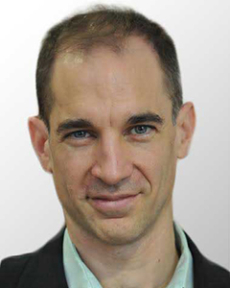
Philip Oreopoulos
University of Toronto
Visiting Scholar
2018 to 2019
Oreopolous will evaluate behavioral interventions designed to increase academic achievement among low-performing students at postsecondary institutions. He will synthesize results from four years of field experiments to identify which students struggle in college, what specific challenges they face, and whether technological aids such as online goal-setting exercises, text message reminders, or electronic calendars can generate meaningful and scalable programs to boost academic success.

Paul Osterman
Massachusetts Institute of Technology
Visiting Scholar
2014 to 2015
Osterman will examine strategies for improving job quality in the low-wage labor market through encouraging employers to improve their human resource policies. In order to aid the development of policies that lead to better wages and benefits in the private sector, he will analyze the conditions that incentivize firms to improve their employment practices. He will focus on the health care and manufacturing industries.

Paul Osterman
Massachusetts Institute of Technology
Visiting Researcher
Paul Osterman will work on a book examining the emerging nature of the employment relationship and what kinds of policies are appropriate for people whose economic outcomes are put at risk by these developments. He will focus on occupations which are being “cut-loose” from traditional employment relationships. This growing trend includes the rise of freelancing and contract work, but is broader and more complex that these two categories.
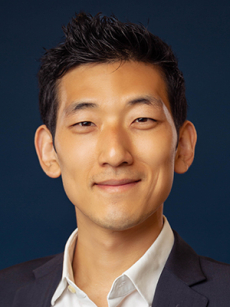
R. Jisung Park
University of Pennsylvania
Visiting Scholar
2024 to 2025
Park (with collaborator Anna Stansbury) will investigate the extent to which the availability and quality of workers’ outside labor market options affect their health and safety in the workplace. Using data from approximately 15 million workers’ compensation claims from California workplaces, Park finds that better outside-occupation options are associated with reductions in the workplace injury rate.
